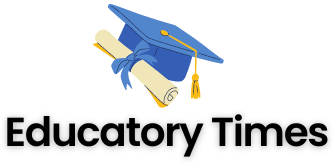In an increasingly competitive academic landscape, the path to university and a successful career can be daunting. For students engaged in the International Baccalaureate (IB) program, particularly those studying mathematics, the challenges are significant, yet so are the opportunities. Mathematics, a core component of the IB curriculum, is not just a subject but a critical tool for logical reasoning and problem-solving. This article provides a roadmap for IB math students, outlining how to leverage their unique educational experiences in preparation for university and beyond.
Understanding the IB Math Curriculum
The IB program offers a rigorous and comprehensive math curriculum, designed to cater to a variety of interests and abilities. Students choose between ‘Analysis and Approaches’ for those inclined towards abstract mathematical thinking, and ‘Applications and Interpretation’ for those interested in practical and real-world application of mathematics. Both courses emphasize deep understanding, logical reasoning, and the ability to approach complex problems in innovative ways.
A pivotal part of the IB math curriculum is the Internal Assessment (IA), a project that encourages students to explore an area of mathematics personally interesting to them. Similarly, the Extended Essay in Math allows for in-depth research, fostering skills that are invaluable at the university level.
Skills Development through IB Math
IB math not only hones a student’s numerical and analytical skills but also develops critical thinking and problem-solving abilities. The curriculum’s focus on real-world applications helps students understand the relevance of mathematics in everyday life and various professional fields. Through the rigorous IA and Extended Essay, students acquire research skills, learn to formulate and test hypotheses and present their findings coherently, all of which are essential skills for university success.
Choosing the Right University Course
The IB math curriculum provides a strong foundation for university-level mathematics and related courses. When selecting a university and a course, students should consider how well the program aligns with their career goals and interests. Some may opt for pure mathematics, while others might find applied mathematics or courses like engineering, economics, or computer science more aligned with their aspirations. The prestige and strength of the university’s mathematics department can also be a deciding factor.
The IB Math Student in University: Transition and Expectations
Transitioning from the IB program to university can be challenging. The pace, depth, and independence required at the university level are greater. However, IB students often find themselves well-prepared thanks to the program’s emphasis on critical thinking and self-directed learning. It’s crucial for students to maintain the high standards of rigor and discipline they developed during their IB years and to seek out additional academic challenges and opportunities.
Career Pathways with a Strong Math Foundation
A solid foundation in mathematics opens up diverse career pathways. IB math students are well-positioned for fields that require strong analytical and problem-solving skills, such as engineering, finance, data science, and research. Early exposure to potential career paths through internships or part-time jobs can be invaluable. Students should also stay abreast of emerging fields where mathematical skills are increasingly in demand, such as machine learning and artificial intelligence.
Beyond Academics: Extracurriculars and Networking
Extracurricular activities play a crucial role in a student’s holistic development. Participation in math clubs, competitions, and other relevant extracurricular activities enhances learning and provides practical experience. Networking is equally important. Building connections with professors, professionals in the field, and peers can open doors to internships, mentorships, and job opportunities.
Preparing for Post-University: Graduate Studies and Job Market
For those considering an academic career or a profession requiring specialized knowledge, graduate studies in mathematics or related fields may be the next step. Equally important is preparing for the job market. This includes building a strong resume, honing interviewing skills, and effectively leveraging the IB experience.
In preparing for their career, IB math students should take advantage of resources like IB past papers, which provide valuable insights into the types of problems and thinking the program emphasizes. These resources can be instrumental in honing problem-solving skills and preparing for university-level mathematics.
Conclusion
The journey from the IB math classroom to university and a professional career is filled with challenges and opportunities. By understanding and utilizing the unique aspects of the IB curriculum, students can develop a robust set of skills that will serve them well in higher education and their future careers. With a proactive approach and a willingness to explore and engage, IB math students can set themselves on a path to success in an array of fields, driven by their strong mathematical foundation and problem-solving abilities.
This roadmap aims to guide IB math students as they navigate their educational and professional paths. By capitalizing on the strengths of the IB program and strategically planning their academic and extracurricular activities, students can prepare themselves not just for university, but for a fulfilling and successful career.

